We find out which items are most forgotten about.
How often do you clean these items in your kitchen?
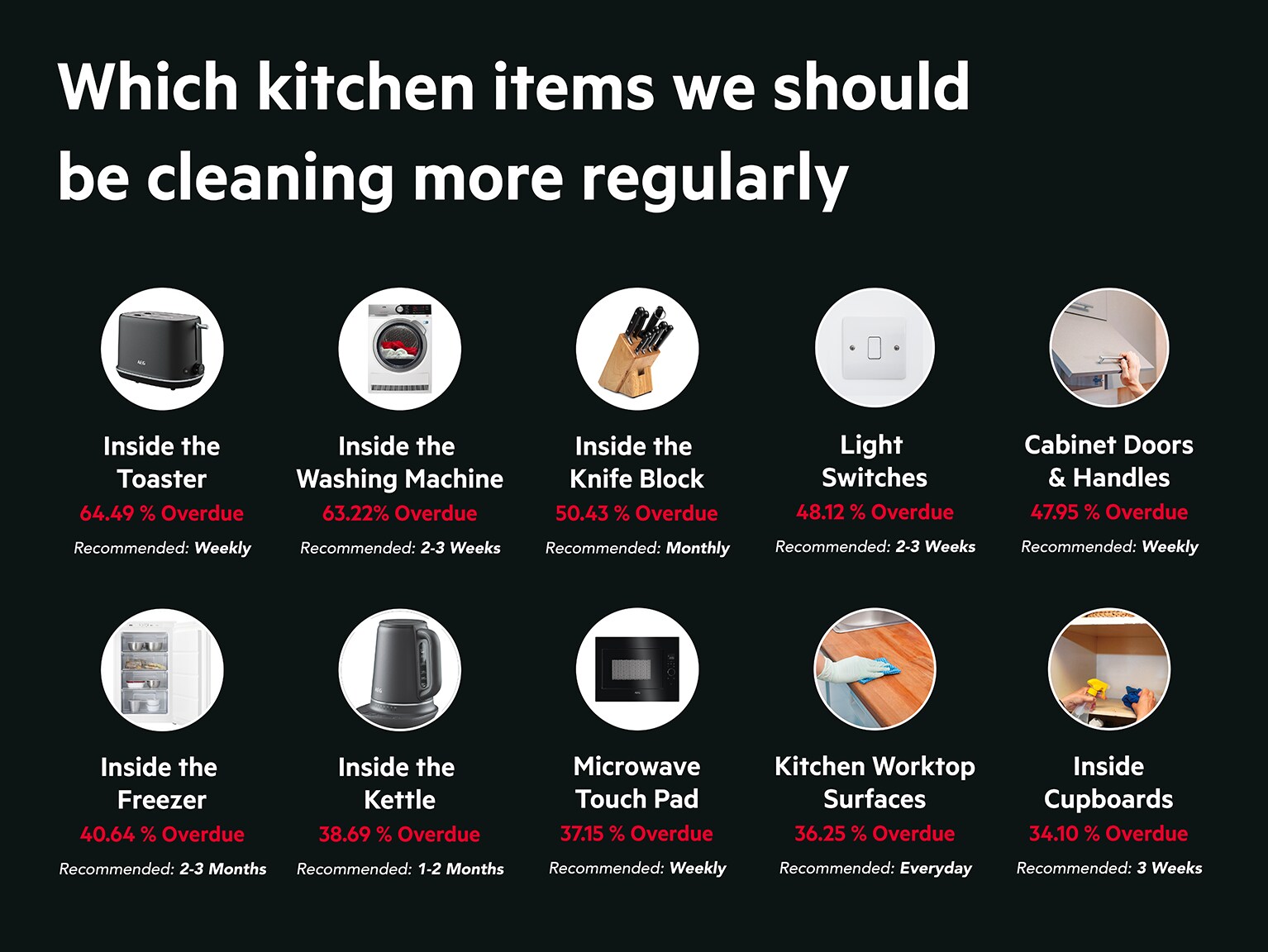
To calculate the ideal time spent undertaking each cleaning task, we partnered with cleaning expert Nicki Rodriguez, aka the Essex House Dolly, to advise on how often you should be cleaning each kitchen element. Using her recommendations, we have also revealed the top kitchen items that are being under-cleaned the most.
Naturally, the amount of time between cleaning is dependent on usage, but also the individual, as Nicki explains; “There, in my opinion, is not one defining answer. It all depends on the individual, their lifestyle, if they have mental health conditions (OCD personally is one that I live with) and basically whether it bothers you if something is clean or looks clean. Also if you have a cleaner can it can be left to them?”
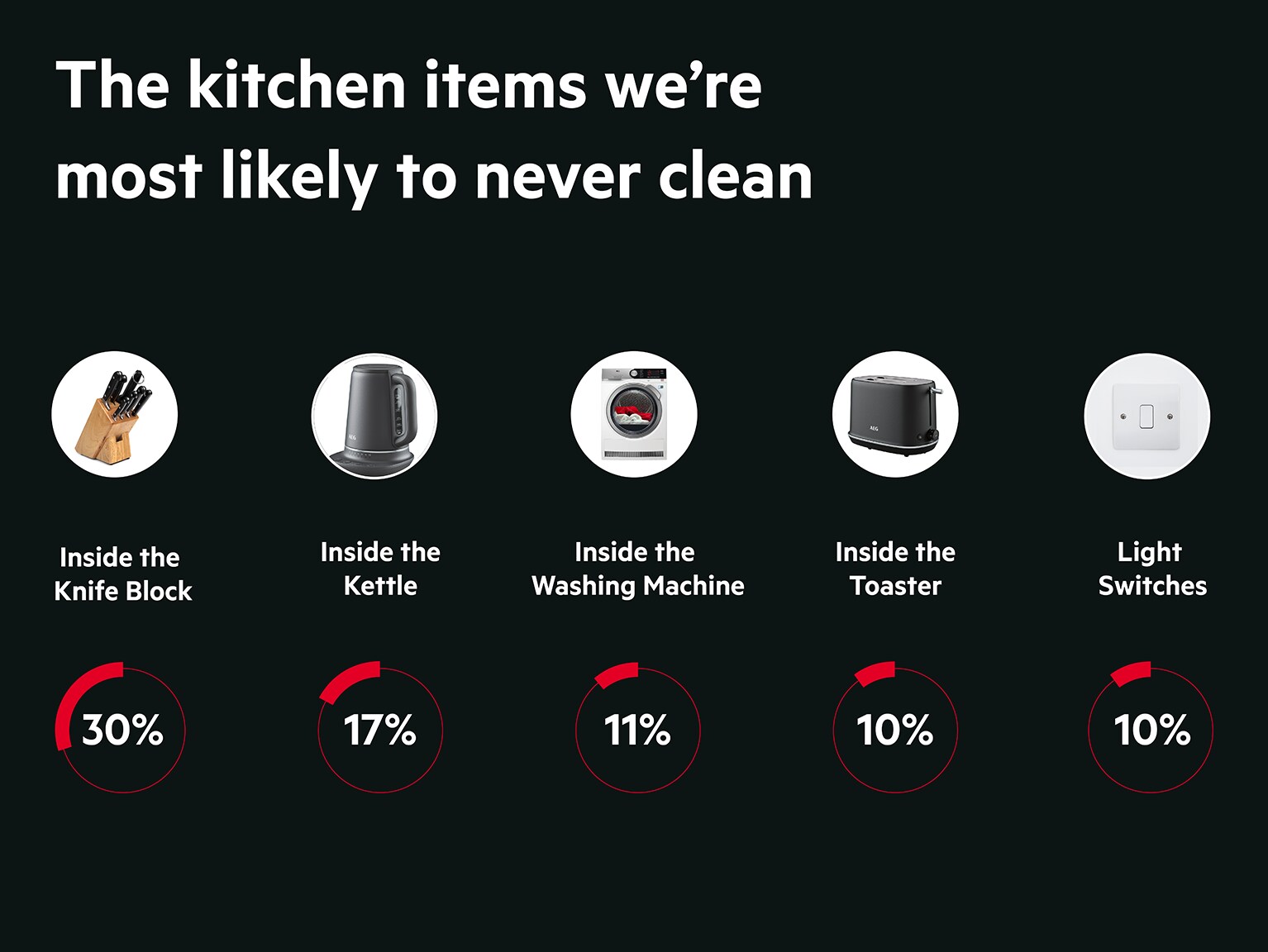
Topping the list of kitchen items that people either forget to clean, or choose never to clean is the inside of the knife block, as nearly a third (30%) of people revealed that they have never cleaned the inside.
The second most neglected item is the kettle, with 17% admitting to never cleaning inside the appliance. We think it might be best to turn down the offer of a brew in future.
Nicki recommends descaling your kettle every four to eight weeks; “The longer a kettle is left, the harder it is to break down the deposits that have built up. Distilled vinegar and water mixed in the kettle until halfway full should do the trick. Just bring it to the boil and allow to rest in the kettle for 15/20 minutes. Pour out the mixture and rinse the kettle afterwards.”
More than 10% of the UK also confessed to never cleaning inside the washing machine or toaster and just shy of one in 10 people never wipe down their light switches. Given the number of times light switches are touched in a day, this is a hotbed for spreading bacteria around the rest of the house.
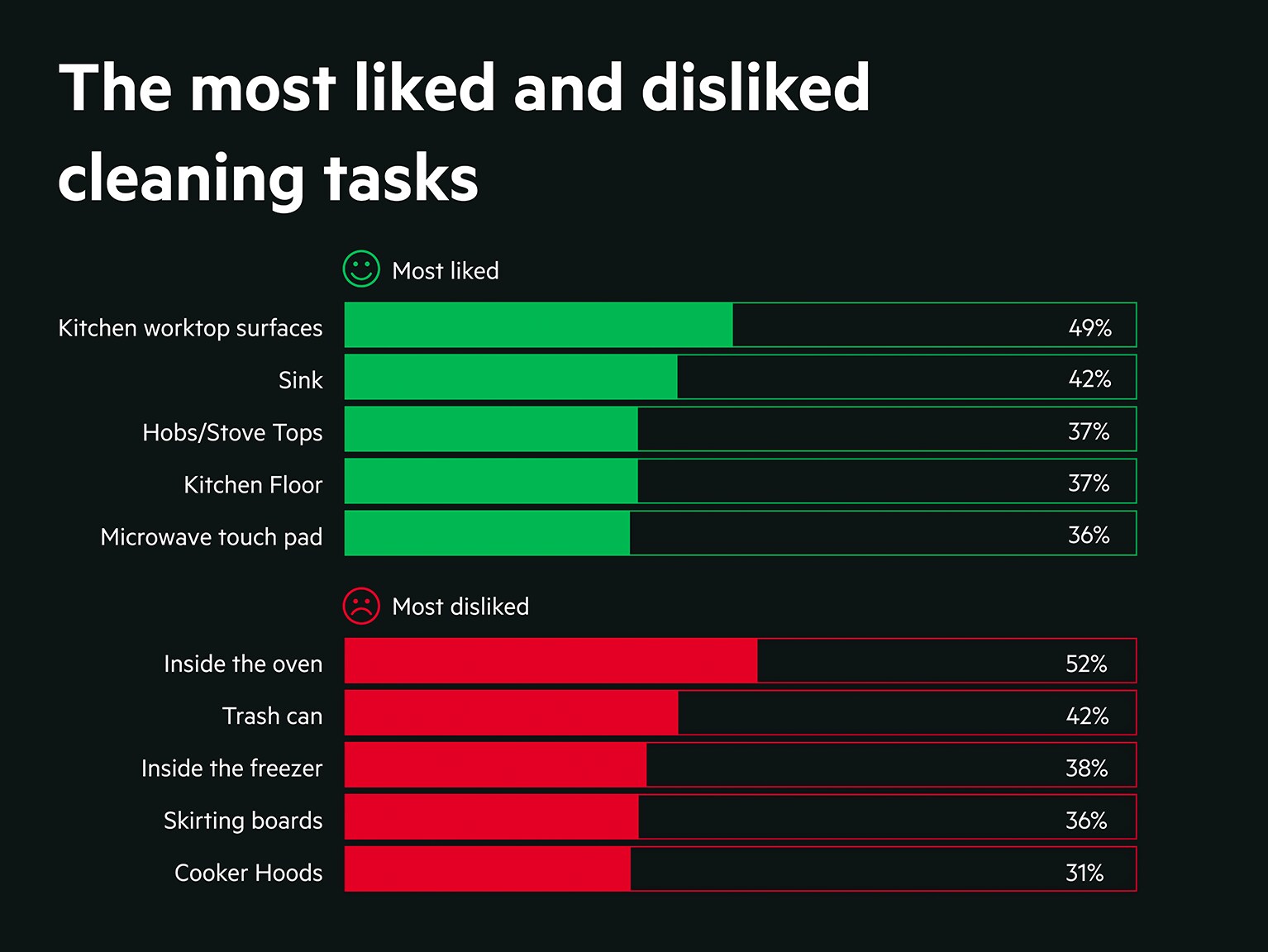
We also uncovered which kitchen cleaning tasks required the most self-motivation to complete, with scrubbing the oven coming out on top, being disliked by over half of Brits. This is where a self-cleaning oven would work wonders.
As much as we may dislike cleaning the oven, it’s crucial that we don’t neglect it for too long, as Nicki explains, “Aside from bacteria, cooking food inside of a filthy oven will cause fumes that your food will absorb, which can result in a funny taste. Your oven may also not function properly if it is not cleaned regularly.”
Cleaning the trash can, inside the freezer, skirting boards and cooker hoods also ranked on the list of the UK’s most disliked kitchen cleaning chores.
Cleaning inside the freezer isn’t the most enjoyable task with it landing as the third most disliked cleaning activity. Nicki recommends cleaning inside your freezer every two to three months, rather than every six to 11 months which was the most common answer from our respondents.
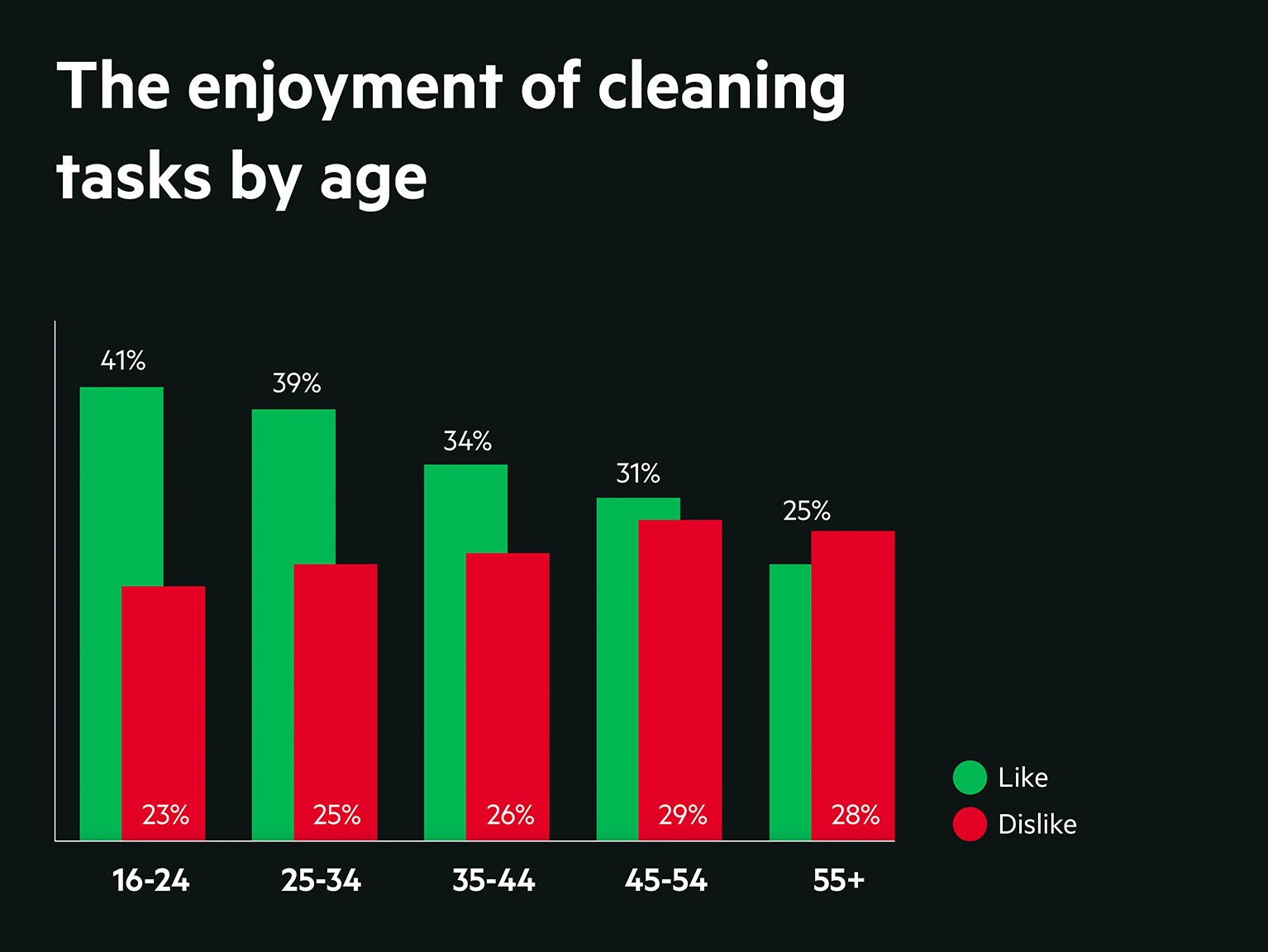
When it comes to a love of cleaning, it’s the younger generations that get the most enjoyment from cleaning the kitchen. Gen Z (aged 16-24) on average take the most enjoyment from across the 21 different cleaning tasks, as well as being the least likely to dislike the tasks across all five age groups.
The older you are, the less likely you are to enjoy cleaning the kitchen. Our data showed a near perfect correlation between age and cleaning enjoyment.
While we all have different enjoyment levels for cleaning, one thing all age groups agreed on is that cleaning the inside of the oven truly is, the worst.
Of the 17 cities analysed in the study, Manchester residents were most likely to enjoy cleaning the kitchen, with Plymouth and Brighton enjoying these cleaning tasks the least.
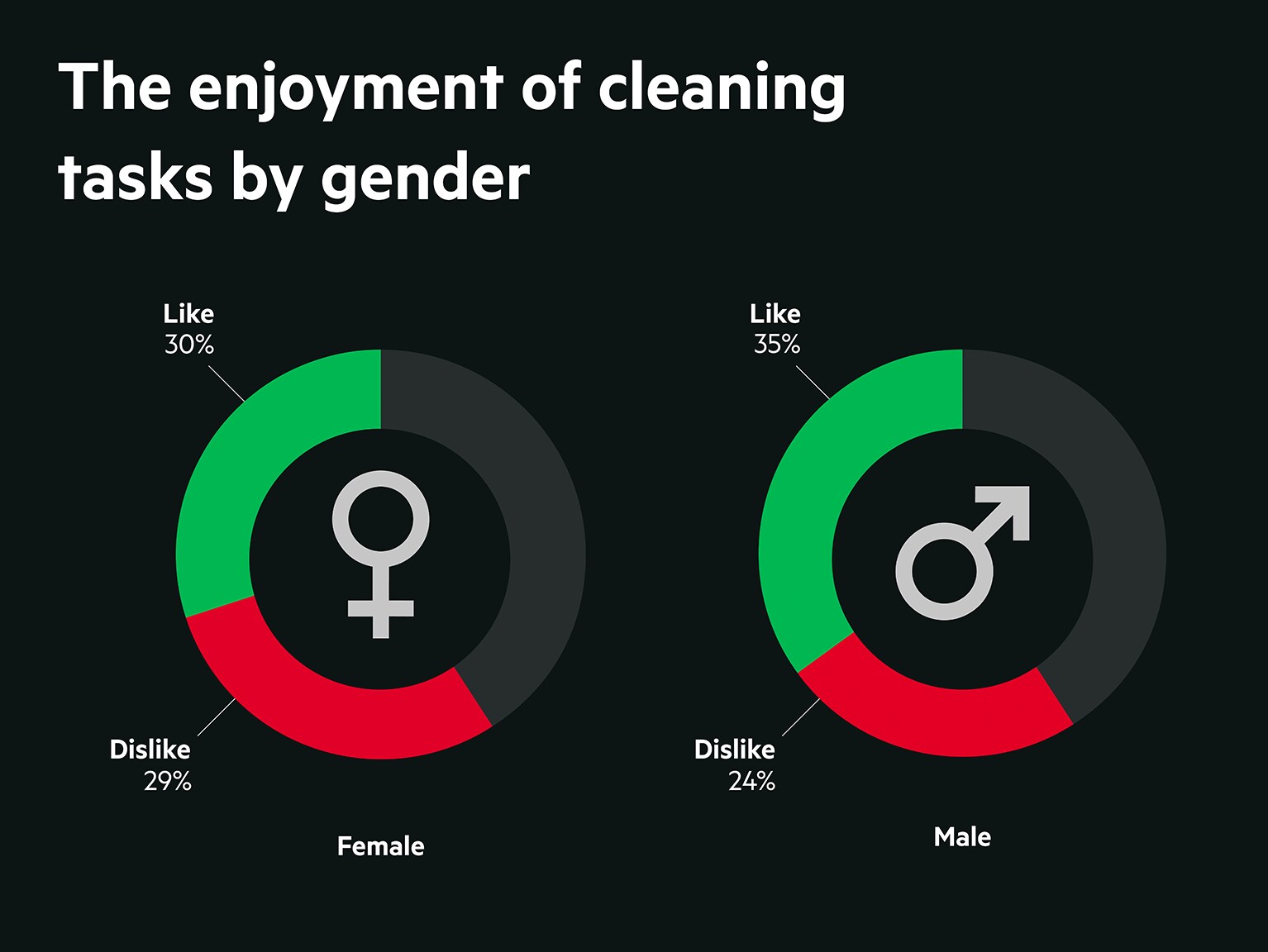
Somewhat surprisingly, the data revealed that men liked kitchen cleaning tasks more than women. Of the 21 cleaning tasks combined, more than a third (35%) of men on average claimed to like the task at hand, compared to only 30% of women.
While it’s impossible for us to answer why this is the case, one possible explanation could be linked to a Harvard University study that found that women spend more time on cleaning tasks and are judged to a higher standard of cleaning by both men and women.
The UK are cleaning the kitchen more post COVID.
If there is such a thing as a silver lining to a pandemic, it would be that as a nation we’re all more conscious of cleanliness and keeping the home as germ free as possible.
We unearthed the differences in cleaning habits post-pandemic versus pre-pandemic and discovered that 29% of the UK are now cleaning the kitchen more regularly than now than pre-COVID, with only 5% claiming they spend less time cleaning since the start of the pandemic.
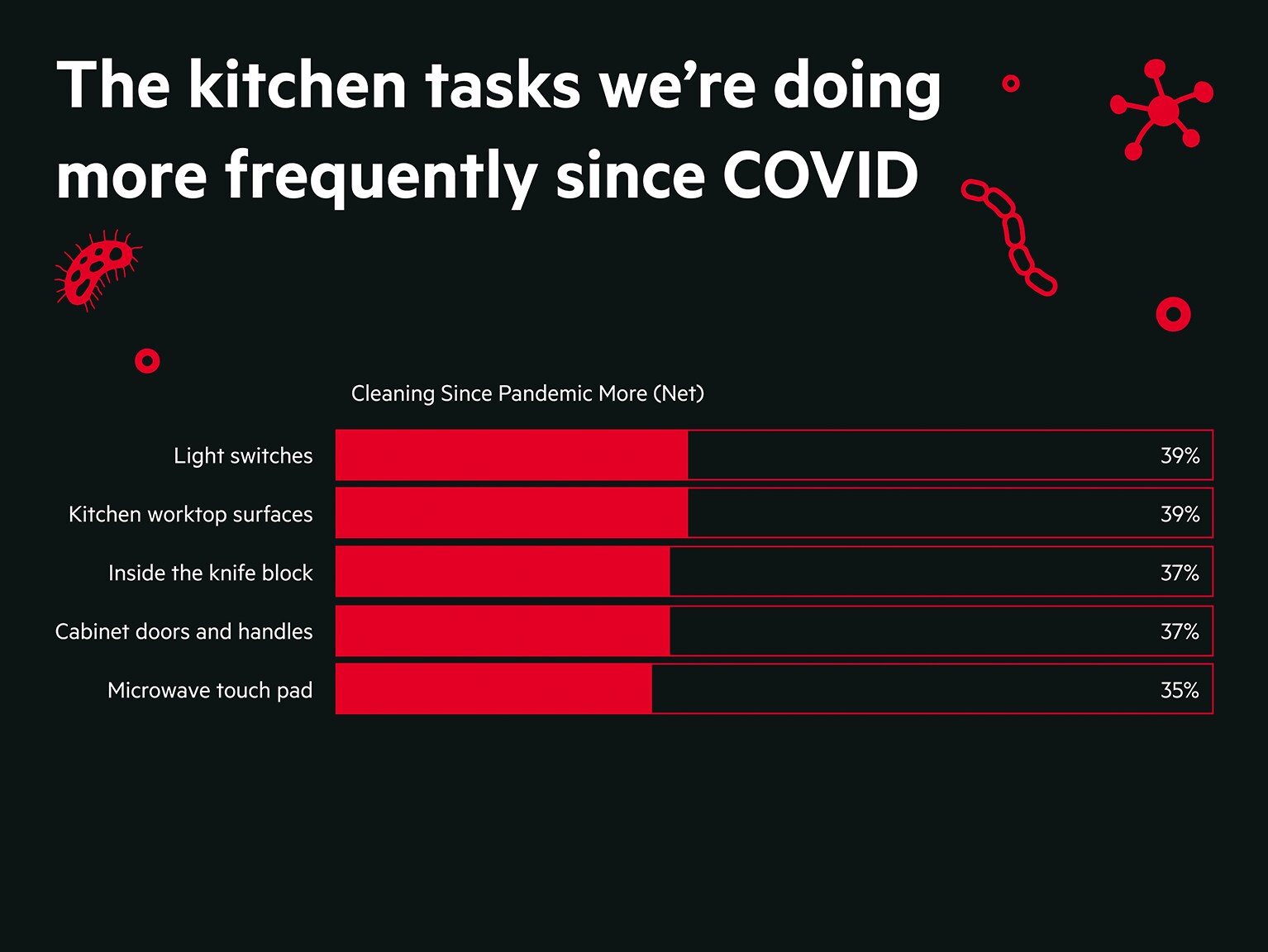
When it comes to items being cleaned more frequently, it’s surfaces with higher rates of ‘touch traffic’ that are being given extra attention. 39% of us are cleaning light switches more often, which sits just ahead of worktop surfaces. The knife block is also getting more cleaning time, along with cabinet doors and handles and the touch pad on the microwave.
We are still however neglecting cleaning inside the freezer, inside the oven and the skirting boards as these are the areas Brits are least likely to have increased cleaning time.
Following on from men enjoying cleaning more than women, we also discovered that almost a third (32%) of men are cleaning kitchen items more regularly since COVID, compared to just 27% of women.
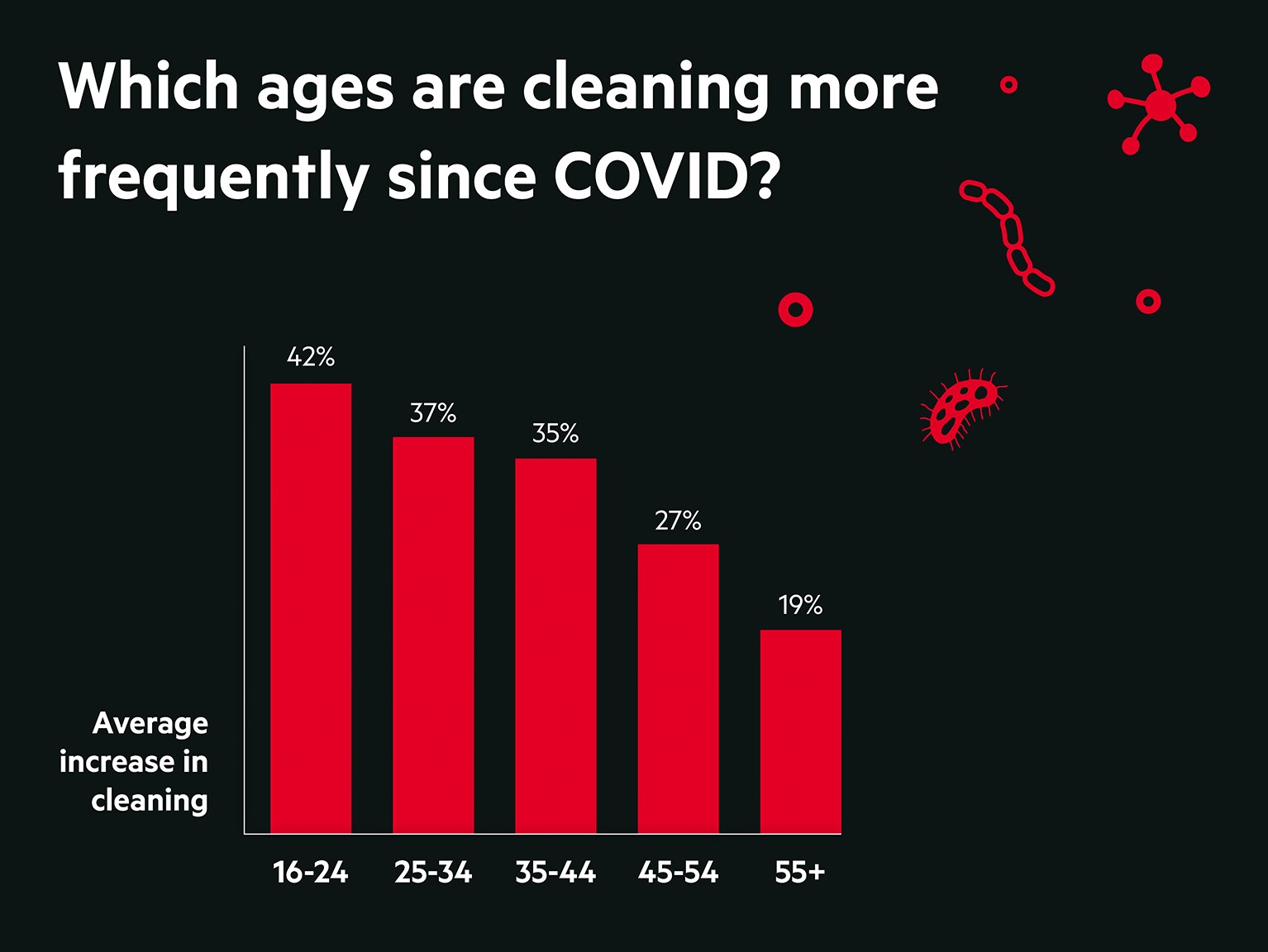
As was the case with getting enjoyment from various cleaning tasks, the younger generation are also spending more time cleaning the kitchen than pre-COVID. Over two fifths (42%) of Gen Z (aged 16-24) claimed they’d increased kitchen cleaning, compared to just one fifth (19%) of those aged 55+.
Ages 16-44 are the most likely age group to be cleaning light switches more frequently, whereas those aged 45+ are more likely to be cleaning worktop surfaces more regularly.